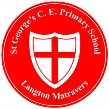History
Learning about history topics at St George’s Primary School and Pre-School is great fun, especially when we have a rich history on our doorstep, such as the Dinosaur Footprints in Acton and Corfe Castle. Children are inspired to research events, they love thinking about people of the past, and especially enjoy all the bits that are gory, nasty or just plain mad (that’s why Horrible Histories is so popular)! It is also fantastic for using so many English, ICT, Art and collaborative skills that we just cannot ignore the wonderful advantages of learning about the past.
History in the National Curriculum can be summed up in just a few statements: ordering events in time; finding differences and similarities; writing and talking about the past; using different sources for information; asking and answering questions. All classes in each year group will do all of these at some point and aim to link ‘then’ with ‘now’.
Early Years Foundation Stage (EYFS)
The early learning goals at EYFS are very much focused on the memories of the child. It may be that they are asked to remember a special event or routine or custom for their family. They may talk about differences between different family members or different generations.
Key Stage 1 (Years 1 and 2)
At Key Stage 1, children will be asked to learn about specific people or events that are both within and beyond living history. Popular choices of our topics can often include people like Neil Armstrong or Tim Peake, Grace Darling, or Florence Nightingale. Events such as the Great Fire of London, the first aeroplane flight, or themes such as castles or toys lend themselves very well to learning about the past. There will often be a very strong link to a local event or person.
Key Stage 2 (Years 3 to 6)
At Key Stage 2, the curriculum is much more prescriptive. Your child will learn all about the following periods of British history over the 4 years in Key Stage 2.
- Stone Age
- Ancient Romans
- Anglo Saxons and Scots
- The Vikings
- A local history unit
- A period of history later than 1066 (e.g. World War 2, Victorians, Tudors, the 1960s).
Children will also be introduced to some world civilisations in history.Ancient Greeks
- Ancient Egyptians or Ancient Shang dynasty of China or the Indus Valley
- The Mayans or Islamic Civilisation or Benin (AD 900-1300) to contrast with British history




